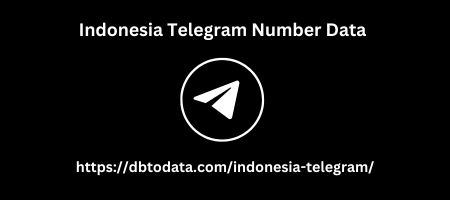Post by account_disabled on Mar 5, 2024 23:19:40 GMT -5
I spent Sunday afternoon with my good friend Matt (he’s left a comment below), who’s a true internet marketer, and approaches social tools like that too, looking for direct and immediate returns. He was talking about how to generate direct revenue through a blog, and quoted also seeking to find out how candidates have used these tools that align with corporate and customer objectives –not just a fondeling of the latest and greatest tools. In upcoming posts (and the report itself) I’ll discuss what skills –and positioning is leading to getting hired. BTW: I’m guilty of breaking rules 1 and 2, and sometimes 3 , so this is a good check to keep all of us focused. Love to hear from you what else candidates should be considering in their social media positioning.
John Chow, who is generating Indonesia Telegram Number Data 40k a month through lead generation, advertising, and other ways to move people through the funnel.He uses auto-responders in email and Twitter (he sent me one after I followed him on Twitter yesterday) to keep people hooked and sells products in the auto responders –this is basically turining social tools into email, which fuels affiliate and direct marketing which fuels ecommerce. In his video, John says that social media marketers believe that monetizing the social web is wrong, and I’d actually disagree. Making money from social is fine, however there’s two ways to do it: 1) This first way is up front, with ads, direct marketing and ecommerce.

I see many bloggers monetizing their blog through direct monetization, Guy, Scoble, and most authors of blogging books have ads, sponsorship or other revenue methods attached to their blogs. 2) a trusted influencer, that is used for the soft sell: build relatioships, trust, and influence over time. These people make money by getting gigs, consulting, or developing leads for their employer. That’s my current approach. So which way is right? Fast or slow? Either way works, it depends on your goals and audience. both is: Having content that attracts your audience (you need to be a good blogger, regardless), have a strategy to move people closer to you, be up front about your intentions.
John Chow, who is generating Indonesia Telegram Number Data 40k a month through lead generation, advertising, and other ways to move people through the funnel.He uses auto-responders in email and Twitter (he sent me one after I followed him on Twitter yesterday) to keep people hooked and sells products in the auto responders –this is basically turining social tools into email, which fuels affiliate and direct marketing which fuels ecommerce. In his video, John says that social media marketers believe that monetizing the social web is wrong, and I’d actually disagree. Making money from social is fine, however there’s two ways to do it: 1) This first way is up front, with ads, direct marketing and ecommerce.

I see many bloggers monetizing their blog through direct monetization, Guy, Scoble, and most authors of blogging books have ads, sponsorship or other revenue methods attached to their blogs. 2) a trusted influencer, that is used for the soft sell: build relatioships, trust, and influence over time. These people make money by getting gigs, consulting, or developing leads for their employer. That’s my current approach. So which way is right? Fast or slow? Either way works, it depends on your goals and audience. both is: Having content that attracts your audience (you need to be a good blogger, regardless), have a strategy to move people closer to you, be up front about your intentions.
